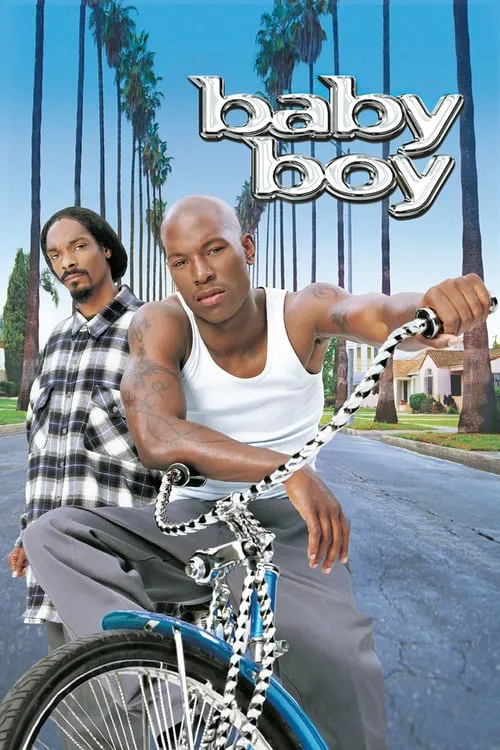Baby Boy

Plot
In the gritty urban landscape of Los Angeles, a sense of disillusionment and desperation pervades the lives of many young men. For Jody Summers, a 20-year-old African-American, this sense of disillusionment has become a way of life. Jody's journey is one of self-discovery, as he is forced to confront the harsh realities of adulthood and the responsibilities that come with it. At the center of Jody's chaotic world is his mother, who has shouldered the burden of raising him since he was a child. Despite her best efforts, Jody has grown into a streetwise, 20-year-old who has never quite found his footing in the world. He is jobless, aimless, and seemingly devoid of any direction or purpose. His only constants are his two children, Jody Jr. and Sonya, whom he has fathered with two different women, Yvette and Peanut. The complexities of Jody's life are skillfully woven together by writer John Singleton, who brings a nuanced and empathetic understanding to this troubled young man. Through Jody's eyes, we see a world that is marked by poverty, desperation, and neglect. We witness the ways in which the urban environment can both inspire and destroy, leaving young men like Jody feeling lost and disconnected from the world around them. Despite his best efforts, Jody seems to be stuck in a never-ending cycle of poverty and stagnation. With no job, no education, and no clear prospects for the future, he is forced to rely on his mother for support. This dynamic creates a sense of resentment and frustration within Jody, as he struggles to come to terms with the fact that he is still living in his mother's house, surrounded by the trappings of childhood. One of the most powerful aspects of Baby Boy is its portrayal of the complex relationships between Jody and the women in his life. His relationships with Yvette and Peanut are marked by a sense of detachment and disconnection, which serves to underscore the emotional numbness that has developed within Jody. Despite his physical presence, he is emotionally absent, struggling to engage with his children and the women who care for him. This sense of detachment is also reflected in Jody's relationships with his mother and other family members. His mother's efforts to care for him are consistently met with resentment and anger, as Jody struggles to accept that he is no longer a child. This dynamic is expertly captured by Ving Rhames, who brings a deep sense of love and frustration to the role of Joe Summers, Jody's father. As Jody navigates the complexities of adulthood, he is also forced to confront the harsh realities of the world around him. The film is marked by a series of intense and often graphic scenes, which serve to underscore the violence and desperation that is present in the urban landscape. These scenes are skillfully handled by Singleton, who brings a sense of realism and authenticity to the film. Despite its many challenges, Baby Boy is ultimately a story of hope and redemption. As Jody slowly begins to come to terms with the realities of his life, he begins to see a glimmer of hope on the horizon. This hope is fueled by a deep-seated desire to change and to find a path forward, one that is marked by purpose and direction. Ultimately, Baby Boy is a powerful exploration of the complexities of urban life, as well as the human capacity for resilience and growth. Through its nuanced and empathetic portrayal of Jody's journey, the film serves as a powerful reminder of the need for understanding and compassion in our treatment of young men like Jody, who are struggling to find their place in the world.
Reviews
Recommendations




